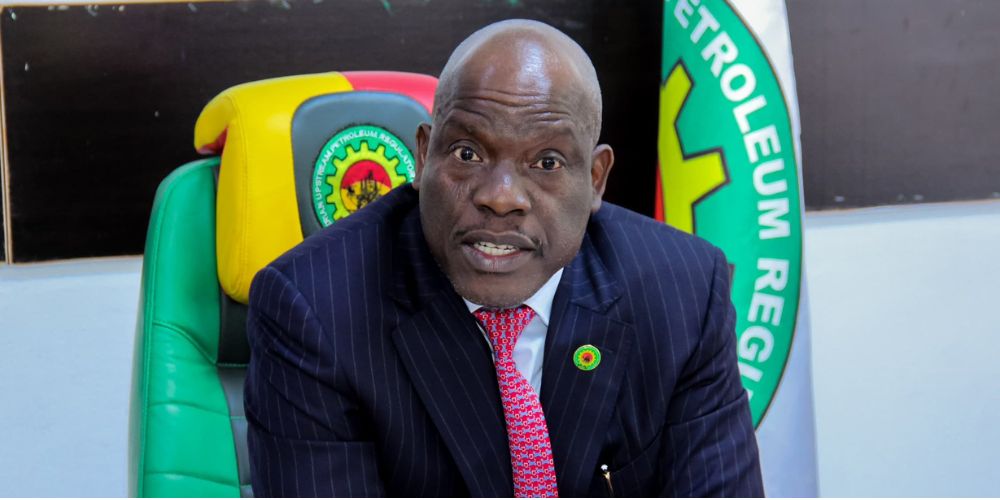The Federal Government, through the Nigerian Upstream Petroleum Regulatory Commission, raked in N5.21tn from the sale of crude oil, gas and other economic activities in the first six months of 2025. It said the revenue inflow represents 42.7 per cent of the record N12.2tn it generated in the entire 2024 fiscal year.
The figure, however, represents only 34.7 per cent of the N15tn revenue target set by the Federal Government for the commission to meet to implement the 2025 budget. The revenue was derived from royalties, gas sales, flared gas penalties, and joint venture proceeds.
Revenue inflow obtained from the commission’s latest report submitted at the Federation Accounts Allocation Committee meeting document revealed that the January to June 2025 earnings include payments from Nigerian National Petroleum Company Limited joint venture and production sharing contract royalty receivables totalling N1.04tn for the period.
Also included is N315.93bn from the controversial Project Gazelle receipts for January and March 2025, with no inflows recorded in December 2024, February, April, May, and June 2025.
The report read, “Revenue Performance: The commission’s performance from January to June 2025 is N5.21tn which is inclusive of NNPC Ltd JV & PSC Royalty Receivables of N1.04tn for the period of January to June 2025 and Project Gazelle receipt of N315.93bn for November 2024 (received in January 2025).”
In addition, NNPC’s JV royalty receivables from October 2022 to June 2025 amounted to N6.60tn, reflecting the cumulative impact of delayed remittances from oil companies.
To ensure the smooth operations of the 2025 budget, the commission said it is targeting N15tn revenue this year.
The NUPRC Chief Executive, Gbenga Komolafe, confirming the target, said, “And we all know the importance of that; we’re ramping up federal revenue. Last year, that is for 2024, you remember that the commission achieved and surpassed its revenue generation by about 163 per cent. This year, our target has been increased to about N15tn.
“So, the commission, recognising that, we have equally devised a strategy. Of course, N15tn is so large, but then we are not daunted; we are not intimidated. Rather, we are defining a strategic approach to achieve that target.”
The report also confirmed the recovery of $459,226 from outstanding obligations, part of a cumulative debt of $1.436bn from various crude oil lifting contracts, leaving a balance of
$1.435bn.
The NUPRC noted that the recovered sum was part of the revenue-sharing reconciliation between NNPCL and the Federation, overseen by the Technical Sub-Committee of the Alignment Committee on the Reconciliation of Indebtedness.
The commission’s mid-year revenue trails the proportional benchmark compared to its N12.25tn actual earnings for the whole of 2024. At the current pace, revenues could end the year below target unless oil output increases significantly and arrears payments accelerate.
Experts speak
Industry experts cautioned the Federal Government against turning the NUPRC into a primarily revenue-generating agency, warning that excessive taxation and an unfriendly business climate could further drive away investment from the nation’s oil and gas sector.
Speaking in separate interviews with The PUNCH, an energy analyst, Dayo Ayoade, and a petroleum engineer, Bala Zaka, said the government risked “killing the goose that lays the golden eggs” if it prioritised revenue collection over creating a stable, investor-friendly regulatory environment.
Ayoade, a lecturer and energy policy analyst, explained that while revenue generation was critical to national development, conflating regulatory oversight with aggressive revenue mobilisation could distort the NUPRC’s mandate.
“Revenue generation is always going to be a taxation issue; people have to pay their dues and taxes. But when you make a regulator a revenue-generating agency, that becomes problematic,” he said.
“The job of the NUPRC is essentially to be the technical and commercial regulator of the upstream oil and gas sector. They are not the FIRS and are not a revenue-generating company. Under the Petroleum Industry Act, the commission collects fees and payments from oil and gas companies for government revenue, but it must balance this with its regulatory responsibilities.”
He warned that excessive fiscal pressure on oil companies could lead to disinvestment, as firms relocate to friendlier jurisdictions.
“If the regulator focuses too much on extracting money from companies, it could injure or even kill the goose that lays the eggs. International oil companies might decide Nigeria is no longer worth the trouble and move to other countries with safer regulatory climates,” he said. “If regulation suffers because of the obsession with revenue, the whole country will suffer in the long run.”
On his part, Zaka blamed the current revenue challenges in the oil sector on years of “business climate hostilities”, which, he said, had driven many international players out of the country.
“When we talk about revenue generation, you look at different sectors, but in Nigeria, the oil sector is the principal source. Unfortunately, the industry has been experiencing hostilities for years, and now the chickens have come home to roost,” he said.
According to him, divestments by multinationals were not simply portfolio adjustments as claimed by the government at the time, but a direct reaction to harassment, sabotage, community extortion, and rising security costs.
“These companies moved to East Africa, where they are now drilling and exploring in new areas. Meanwhile, the indigenous firms that took over onshore and shallow-water facilities are not aggressively exploring or building reserves. They are content with the money they are making without increasing production,” he said.
Zaka noted that production shortfalls had inevitable consequences for government revenue. “If production is high, you make more revenue. But because hostilities persisted in places like Warri, companies relocated to Port Harcourt, and now some are even moving to Lagos. The truth about our revenue generation ability was always going to come out, and now we are seeing it physically,” he added.
Both experts urged the government to focus on improving security, reducing regulatory bottlenecks, and incentivising exploration if it wants to sustainably grow oil revenue without crippling the sector’s future.
FOLLOW US ON:
FACEBOOK
TWITTER
PINTEREST
TIKTOK
YOUTUBE
LINKEDIN
TUMBLR
INSTAGRAM































